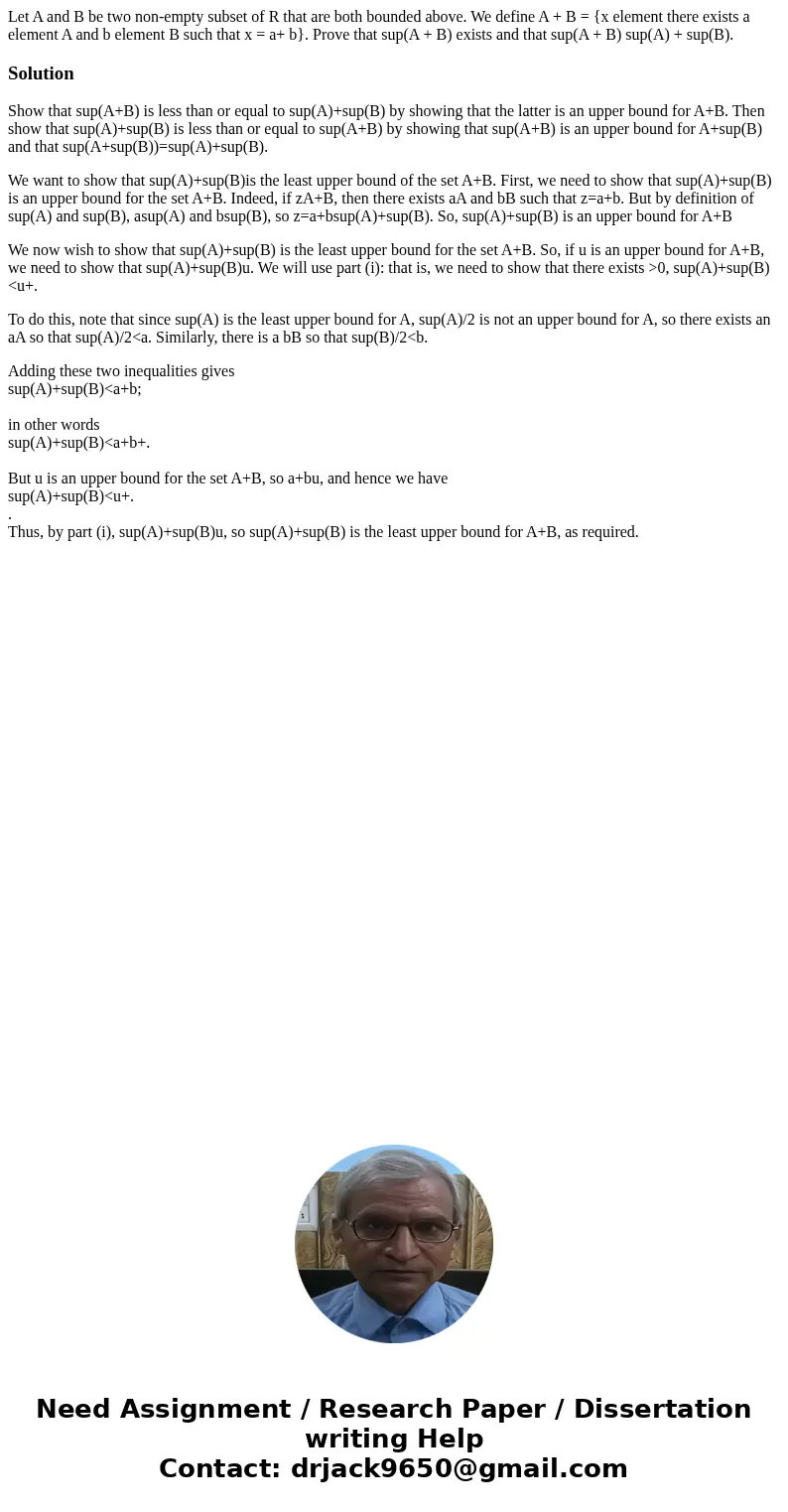Let A and B be two nonempty subset of R that are both bounde
Solution
Show that sup(A+B) is less than or equal to sup(A)+sup(B) by showing that the latter is an upper bound for A+B. Then show that sup(A)+sup(B) is less than or equal to sup(A+B) by showing that sup(A+B) is an upper bound for A+sup(B) and that sup(A+sup(B))=sup(A)+sup(B).
We want to show that sup(A)+sup(B)is the least upper bound of the set A+B. First, we need to show that sup(A)+sup(B) is an upper bound for the set A+B. Indeed, if zA+B, then there exists aA and bB such that z=a+b. But by definition of sup(A) and sup(B), asup(A) and bsup(B), so z=a+bsup(A)+sup(B). So, sup(A)+sup(B) is an upper bound for A+B
We now wish to show that sup(A)+sup(B) is the least upper bound for the set A+B. So, if u is an upper bound for A+B, we need to show that sup(A)+sup(B)u. We will use part (i): that is, we need to show that there exists >0, sup(A)+sup(B)<u+.
To do this, note that since sup(A) is the least upper bound for A, sup(A)/2 is not an upper bound for A, so there exists an aA so that sup(A)/2<a. Similarly, there is a bB so that sup(B)/2<b.
Adding these two inequalities gives
sup(A)+sup(B)<a+b;
in other words
sup(A)+sup(B)<a+b+.
But u is an upper bound for the set A+B, so a+bu, and hence we have
sup(A)+sup(B)<u+.
.
Thus, by part (i), sup(A)+sup(B)u, so sup(A)+sup(B) is the least upper bound for A+B, as required.

 Homework Sourse
Homework Sourse